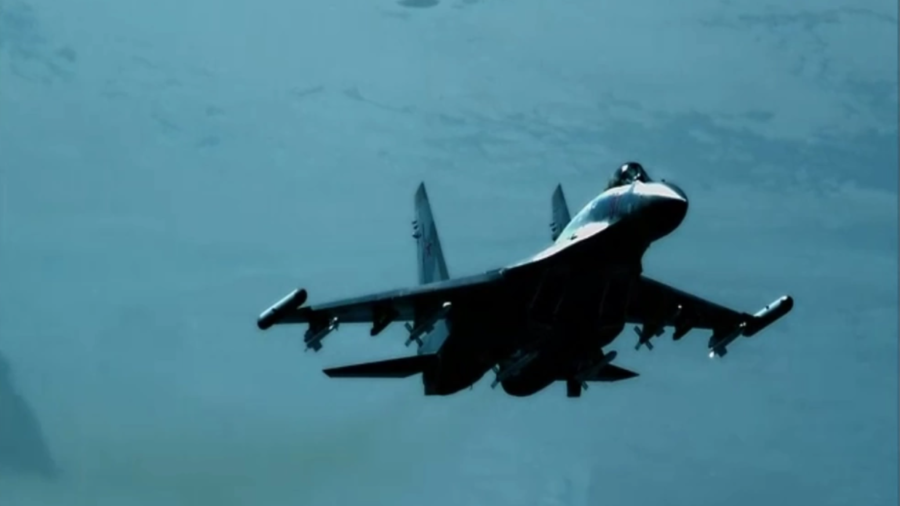U.S. and Russian officials are each accusing the other side of causing a dangerous encounter between a U.S. MQ-9 Reaper drone and a Russian military aircraft over Syria on Sunday.
Russian Rear Adm. Oleg Gurinov told the Russian state-run TASS news agency that the U.S. drone nearly caused a mid-air collision with Russian warplanes operating near Al-Bab, in the northern Syrian region of Aleppo. He claimed the U.S. drone eventually turned its targeting system on the Russian fighter jet, automatically triggering the Russian warplane’s defensive systems.
“Russian pilots once again demonstrated high professionalism and took timely measures to prevent collisions with the coalition’s unmanned aerial vehicles,” Rear Adm. Gurinov said.
Lt. Gen. Alex Grynkewich, the head of U.S. Air Forces Central (AFCENT), by contrast, claimed a Russian fighter jet approached the U.S. drone and began “harassing” it before “deploying flares from a position directly overhead, with only a few meters of separation between aircraft.”
“One of the Russian flares struck the U.S. MQ-9, severely damaging its propeller,” he said in a Tuesday press statement.

The U.S. Air Force shared a video of the encounter. The MQ-9’s rear-facing camera captured footage of a fighter jet closing in from behind, followed by grainy forward-facing infrared footage appearing to show a fighter jet dropping a series of flares behind.
On July 23 Russian military aircraft deployed flares, damaging a U.S. MQ-9 while conducting a defeat-ISIS mission. For the full statement by Lt. Gen. Alex Grynkewich, Commander, 9th AF (AFCENT) visithttps://t.co/5cQm8MQ6aQ@CENTCOM @DeptofDefense @usairforce @CJTFOIR pic.twitter.com/ViVTI3P05i
— US AFCENT (@USAFCENT) July 25, 2023
“The Russian fighter’s blatant disregard for flight safety detracts from our mission to ensure the enduring defeat of ISIS,” Lt. Gen. Grynkewich said. “We call upon the Russian forces in Syria to put an immediate end to this reckless, unprovoked, and unprofessional behavior.”
NTD News reached out to AFCENT for more details about the incidents on Sunday but did not receive a response by the time this article was published.
US-Russia Tensions
The latest interaction between the U.S. drone and a Russian fighter jet is similar to another incident over Syria earlier this month.
On July 5, three Russian fighter jets began flying around a trio of U.S. MQ-9 drones during a mission against the ISIS terrorist group. One of the jets, a Su-35, approached one of the U.S. drones from behind, pulled ahead, and then engaged its afterburner.
U.S. officials said that the Russian jet’s afterburners altered the air pressure ahead of the MQ-9, reducing the drone’s ability to safely operate. One of the Russian fighter jets also released several parachute flares around a U.S. drone.
The U.S. Central Command, or CENTCOM, reported subsequent incidents of Russian aircraft harassing U.S. drones on July 6 and 7.
“Russian unsafe and unprofessional behavior in the air not only degrades our Defeat ISIS mission, it risks unintended escalation and miscalculation,” CENTCOM commanding Gen. Michael “Erik” Kurilla said of the aerial encounter over Syria on Sunday.
On July 20, Rear Adm. Gurinov claimed a U.S. F-16 fighter jet used its targeting system on a Russian aircraft over Syria and that the U.S. and its allies had repeatedly violated an aerial deconfliction zone over Syria in recent days.
These back-and-forth allegations between U.S. and Russian forces in Syria come amid already high tensions between the two countries. Russia has bristled at the U.S. and its allies supplying weapons and other military systems to Ukrainian forces currently fighting with Russian troops.
In March, the U.S. European Command reported a Russian fighter jet “struck the propeller” of a U.S. MQ-9 operating over the Black Sea, causing the drone to crash into the sea.
Russian forces have also recently begun striking Ukrainian ports and warning ships traveling through the Black Sea that they could be attacked. These attacks and threats to maritime traffic could disrupt the flow of grain from Ukraine to other parts of the world.

